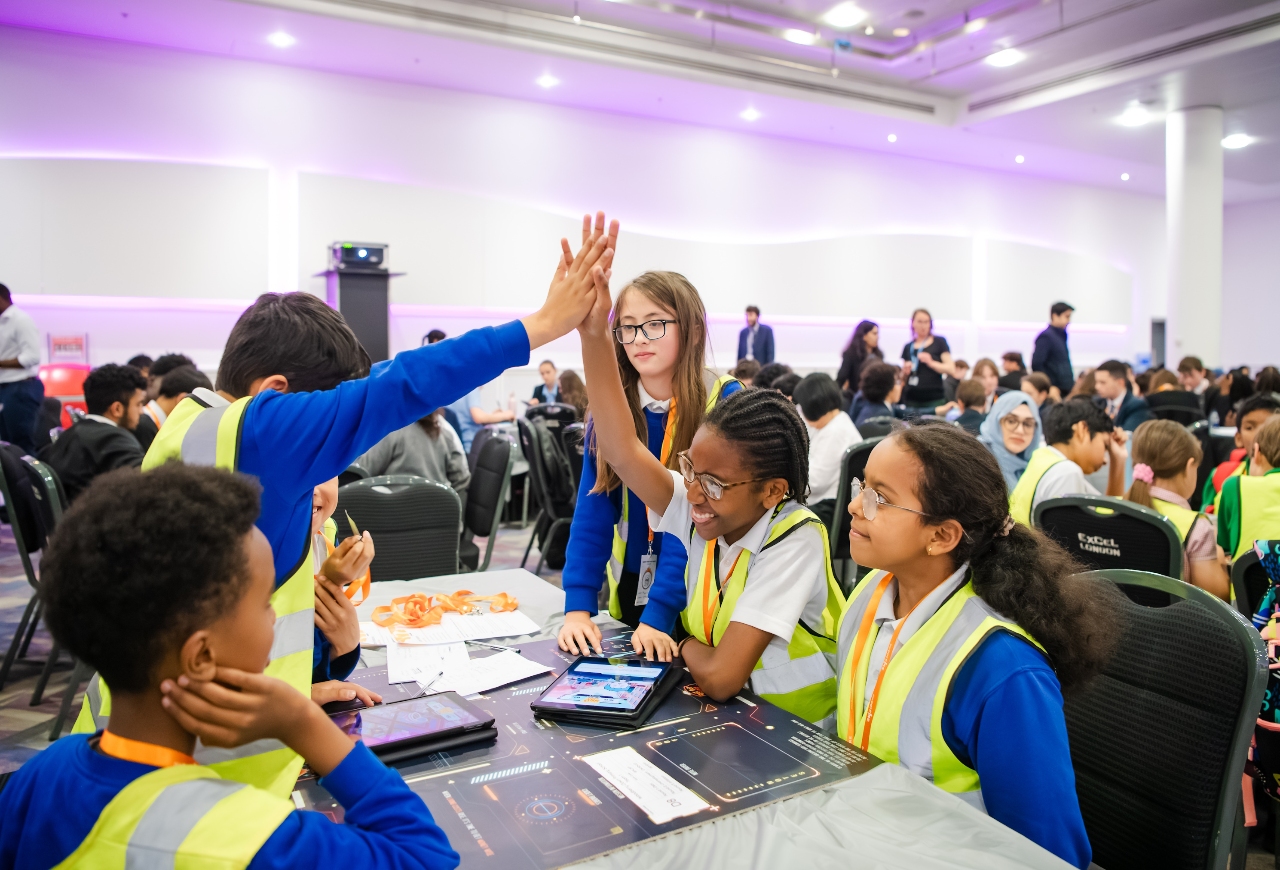The gaming sector is growing at an exponential rate. For impact investors, there are a number of pathways forward, but also key considerations around how to affect social change through gaming.

Last month, around 700 children from over 90 schools across London gathered together for one purpose – to take part in the country’s only eSports financial literacy competition.
The Money Wise Challenge, the brainchild of educational video game provider Dot Dot Fire, aims to help children learn about how they can tackle the cost-of-living crisis, become savvy spenders and understand and organise finances in their own lives.
“In the world of education or parenting, gaming carries a stigma, but when used appropriately it is very powerful. It is an interdisciplinary way of teaching young people the soft skills they need, in addition to the hard knowledge they learn in classrooms,” says Franco Lam, co-founder of Dot Dot Fire.

For impact investors, the world of gaming is becoming increasingly of interest. Gamers are a growing and engaged audience. There are over 3.32 billion active video gamers in the world, a figure that has risen by over one billion in just eight years, meaning that almost half the planet is interacting with the world of gaming in some way. Games can provide a pathway to communicate, educate, and inspire, believe industry experts.
It is also a financially lucrative market. The gaming industry could be worth as much as $321bn (€296bn) by 2026, according to PwC. Revenues are almost three times that of the music business, and almost four times that of the movie sector, according to industry estimates. In total, venture capital firms invested $4.1bn into gaming startups across 572 deals in 2023, according to Pitchbook figures.
Opportunities
The industry is engaging with the concept of ‘gaming for good’ in a variety of ways already. Halo 5 supported GlobalGiving’s Coronavirus Relief Fund, for example, while Humble has raised $257m for charity. Elsewhere, Games for Change released a virtual reality documentary, On the Morning You Wake, recreating the lived experiences of people who had to make impossible decisions in the face of nuclear violence. Festivals and conferences around how gaming can make a difference are becoming more prevalent, as the industry grapples with social and environmental themes and challenges.
“There are a lot of opportunities in this space. It is a newer space, but gaming helps with PTSD, it helps people understand poverty through simulation, it supports healthcare, education and more. It is one tool within the larger ecosystem,” says Charles Gasper, senior consultant, evaluation and learning, at social impact consultancy TCC Group. He believes that games can play a substantial role in the world of impact, by connecting awareness to knowledge, to understanding and to action.
“Games, like all media, have the ability to inform and help someone grow from one level to the next. They also have a special power – one that is more unique to them. They more easily evoke emotional connections with the players connecting to the experiences of the characters they might be playing or even feeling the loss of people, represented by tokens on a board. Other, passive media can also create emotional connections, but I believe that process takes longer to form, or the person already identifies with the characters portrayed in the pieces,” he says.
Key considerations
For impact investors, one challenge will be around how to position themselves in this space. “For social impact investors, if a game is well designed, there is an opportunity to do what you would have done with standard media, but really ramp it up and get people engaged and thinking,” says Gasper.

He believes it is vital that investors understand and assess their audiences, while also being clear about what it is they are trying to achieve. The game Zombie Pox, for example, and the game Pox, both intended to teach people that vaccines are more effective than treatment. “But if you give folks who are reluctant to take a vaccine the opportunity to play Pox, it does not improve their willingness to try a vaccine. However, if you give them Zombie Pox, you are now inculcating people against becoming a zombie, versus a disease, and they are more likely to try a vaccine, because it’s fun, they are not being preached at because it is one step removed, and they learn.”
For his part, Lam points out that many gaming developers don’t tend to think about impact at all. “They are actually thinking about the exact opposite – how to exploit a users’ psychological weaknesses to get the most microtransactions out of them.”
In addition to working with schools, Money Wise also has a B2C game, which has been downloaded by over half a million young people worldwide, giving them “the core skills of managing their financing, and previewing what is ahead in their young adult life. The game is a life simulation game, we give our users a safe environment to try things and fail”, says Lam.
Dot Dot Fire is now launching a new B2C game, Forest Fables: Money Wise Life, and is exploring ethical ways to charge users, according to Lam. “The game will be free to start with, with a limited scope of ads, and then there will be in-house purchases. You would play as you would play in real life, for example, buying a housing pack or a content pack. You would essentially be buying into the education of running a house.”
Dot Dot Fire is also exploring ways to bridge the gap between the gaming world and the real world. “In the game everything is fake money, and we want to go a step further. We are now forming partnerships with financial institutions to allow the players who have learnt and practiced positive money habits in the game to translate that into saving money and accumulating wealth in real life,” says Lam.
The firm is planning a pilot programme with a credit union, offering a higher interest rate savings account with a higher monthly limit for players who have completed certain levels of the game, meaning that it is both generating social change and creating a financially sustainable business model.
Making an impact
For investors who are thinking about making their first foray into the gaming space, there are key considerations however. “Investors need to think about what they want to accomplish. If I play a game [that] teaches me that trees are important, then what is the end outcome? Are you trying to affect policy change? Are you trying to get people to buy trees, or increase the use of fertilisers? You have to have the end goal in mind and understand how these goals intersect with the game,” says Gasper.
They also have to think about how gaming can fit into their wider investment approach. “For me it is the education piece, the simulation piece, and the ability to connect with an important issue. Investors should be focused on how gaming fits into their portfolios and how they can help align and move things forward on one specific outcome,” Gasper adds.






